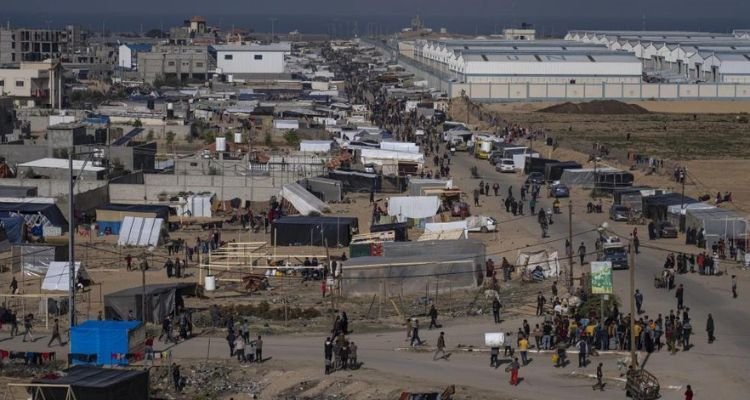BRUSSELS (AP) — Describing the Israel-Hamas conflict as unparalleled in terms of media casualties, the head of the global organization representing journalists stated on Monday that the situation has reached an unprecedented level.
Since the start of the war on Oct. 7, an average of one journalist or media worker has been killed every day, totaling around 60 casualties. This figure is already nearing the number of journalists killed during the entire Vietnam War half a century ago. Anthony Bellanger, the general secretary of the International Federation of Journalists, remarked that even the intense wars in Syria, Iraq, and ex-Yugoslavia did not witness such a high level of journalist fatalities.
Following the weeklong cease-fire in Gaza that ended on Friday, the tragic toll has continued, with at least three or four more journalists losing their lives, according to Bellanger.
The victims include around 51 Palestinian journalists, as well as Israeli and Lebanese counterparts. Most of the casualties occurred during Israel’s bombardment in the Gaza Strip, but Israeli journalists were also killed during Hamas’ attack in southern Israel that triggered the war.
Bellanger emphasized that these numbers are based on all available sources used by the federation for its annual report.
In addition to the human cost, numerous media organization premises in Gaza have been destroyed, estimated at about 1,000 journalists and media workers who were present before the conflict. Presently, no one can leave the area.
Despite the challenges, local journalists in Gaza continue to carry out their work diligently. Nasser Abu Baker, president of the Palestinian Journalists’ Syndicate, highlighted the dedication of these journalists who, despite personal losses and hardships, persist in their reporting.
Bellanger expressed disappointment with the lack of responsiveness from Israeli authorities. Despite attempting contact with the Israeli government and proposing a meeting during his recent visit to Palestine, he received no replies.
Israel maintains that it takes every possible measure to avoid civilian casualties and accuses Hamas of placing civilians at risk by operating in residential areas.
Both the International Federation of Journalists and Reporters Without Borders have urged International Criminal Court prosecutors to investigate the deaths of journalists and media workers. ICC chief prosecutor Karim Khan has visited the area, and the ICC’s prosecution office is already looking into actions by Israeli and Palestinian authorities dating back to the 2014 Israel-Hamas war. This probe can extend to include allegations of crimes committed during the current conflict.
While Khan has called on Israel to respect international law, he has not directly accused the country of war crimes. He did, however, label Hamas’ Oct. 7 attack as a serious violation of international humanitarian law.
Israel argues that the ICC lacks jurisdiction in the conflict because the Palestinian territories are not an independent sovereign state. Additionally, Israel is not a party to the treaty that underpins the ICC and is not one of its 123 member states.
Bellanger remains cautious about anticipating a sudden change on the ground but maintains a non-pessimistic outlook as the chief of the global journalism network.

